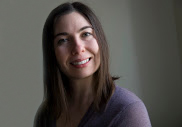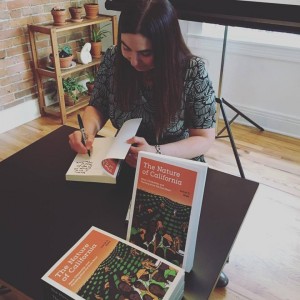About Me

I am Associate Professor of Environmental Studies and English at University of Oregon. The University of Oregon is located on Kalapuya Ilihi, the traditional Indigenous homeland of the Kalapuya people. Learn more.
At the University of Oregon, I am affiliated graduate faculty with Indigenous, Race, and Ethnic Studies and on the steering committee for the Center for Environmental Futures. I am affiliated with Food Studies and the Center for Latino/a and Latin American Studies. I research and teach classes on the relationship between race and the environment, immigration and citizenship, food studies, environmental justice, and nature in popular culture. I am particularly interested in a comparative approach to Asian American and Latinx literature and culture.
Current Research:
I am currently working on a number of parallel projects focused on the Outdoor Diversity Movement and Environmental Justice on Public Lands. This includes a monograph, “Environmental Justice Storytelling in the Outdoor Diversity Movement” and a co-edited (with Gabriela Nuñez, David J. Vázques, and Priscilla Solis Ybarra) special theme issue of Diálogo on Latinx Outdoor Recreation. This work is build around both academic collaborations and collaborations with public lands agencies and advocacy organizations throughout the region. The Digital Humanities Project, Mt. Hood Stories, results from a collaboration with UO Libraries Dream Lab, Bark, and graduate students at UO. I served as the lead organizer for a multi-day symposium on Race, Environmental Justice, and Public lands at the University of Oregon which brought together scholars and practioners to address environmental justice and racial inequities on public lands.
One of the joys of my time in academia is the collaborations I have developed. Over years of conference presentations, coffee gatherings, and conversations with David J. Vázquez, Priscilla Solis Ybarra, and Sarah Jaquette Ray, we developed the framework that became Latinx Environmentalisms: Place, Justice, and the Decolonial. Bringing together original interviews with creative writers with new essays by emerging and established Latinx Studies scholars, Latinx Environmentalisms accounts for the ways Latinx cultures are environmental, but often do not assume the mantle of “environmentalism.” The contributions, which focus on film, visual art, and literature—and engage in fields such as disability studies, animal studies, and queer studies—emphasize the role of racial capitalism in shaping human relationships to the more-than-human world and reveal a vibrant tradition of Latinx decolonial environmentalism. Latinx Environmentalisms: Place, Justice, and the Decolonial received the MLA Prize for an Edited Collection.
My first book, The Nature of California; Race, Citizenship, and Farming since the Dust Bowl focuses on the paradoxical ways that farmers and farmworkers in California have been represented from the 1930s to the start of the twenty-first century. It examines the ways that depictions of farming and farm labor have never just been about those who labor in the earth, but have also presented a site to think through national belonging. The book exposes the process by which some people come to be seen as legitimately “American” while others are named as aliens, suggesting the ways in which the categories of natural and unnatural structure the U.S. system of racial gate-keeping.
Background:
I first arrived in the Pacific Northwest while attending Reed College (’01 American Studies). After I finished my undergraduate degree, I worked with several environmental non-profits: American Lands Alliance, ForestEthics, Rainforest Relief, and Bark. Working on issues around public lands and logging intensified my curiosity about the relationship among race, labor, citizenship, and the environment.
I headed off to graduate school in American Studies at Brown University in Providence, Rhode Island hoping to better understand the ways categories of identity and social hierarchies structured the underlying assumptions of the environmental movement. While living in Rhode Island, I witnessed the momentum of the immigration rights movement and the suffering caused by workplace immigration raids. Immigration and citizenship became central categories in my scholarship. In 2009, I was awarded my PhD and received the Joukowsky Family Foundation Outstanding Dissertation Award from Brown University.
My pronouns are she/her.
- Faculty Profile: http://envs.uoregon.edu/news/faculty-profile/
Follow me on Twitter: @SarahDWald
Questions? Comments? Want to schedule a book talk or other event? Email Me
